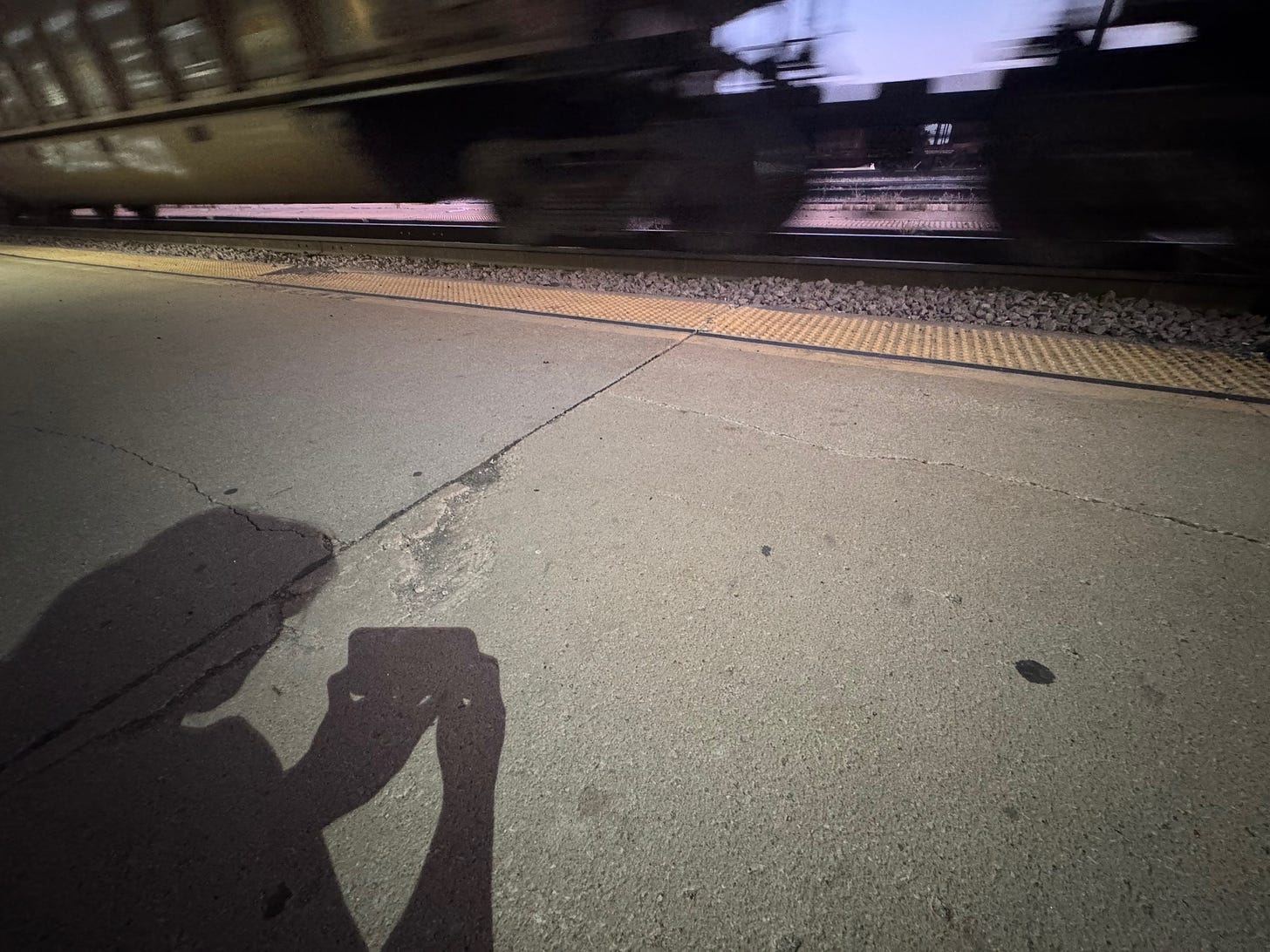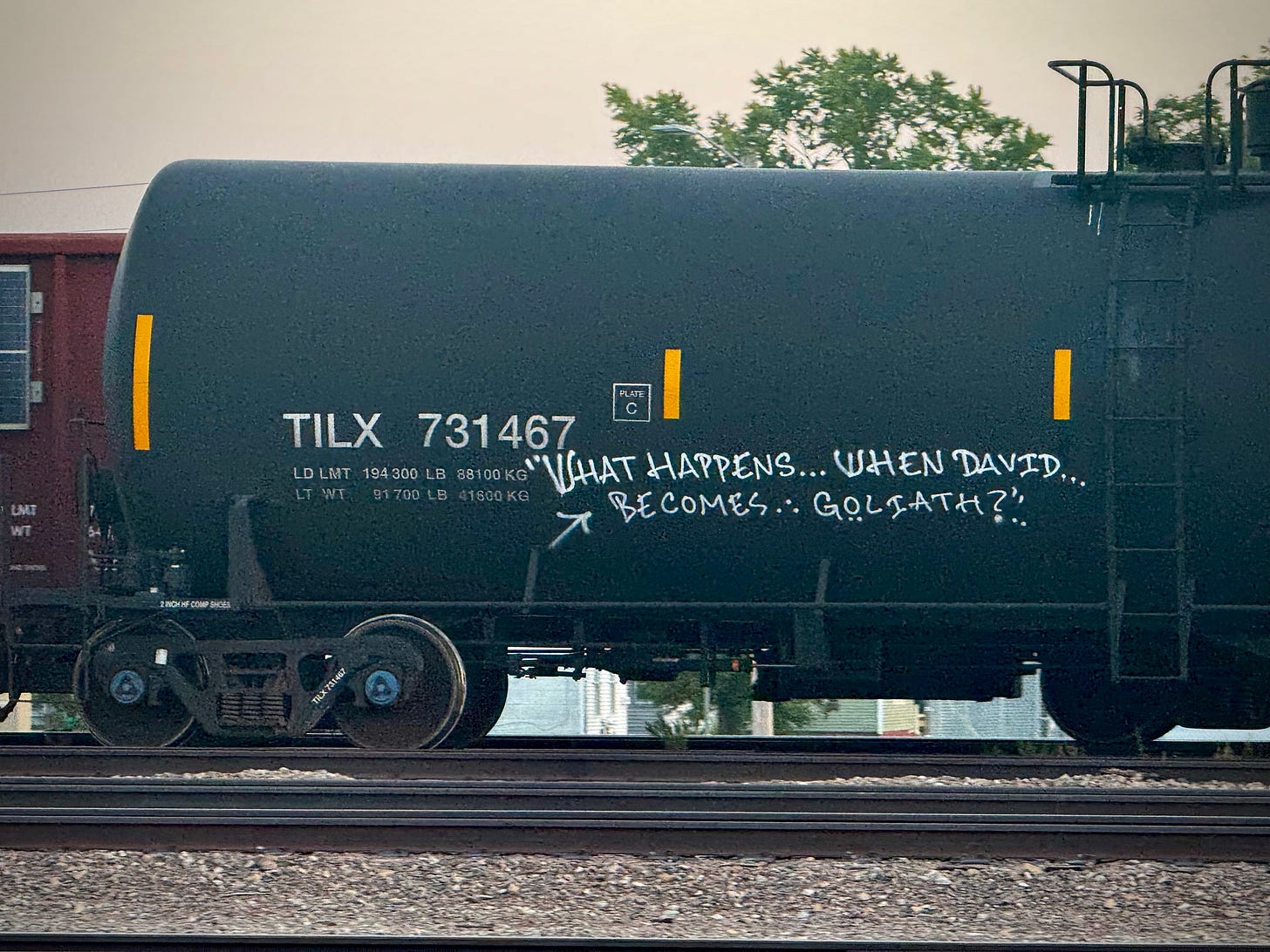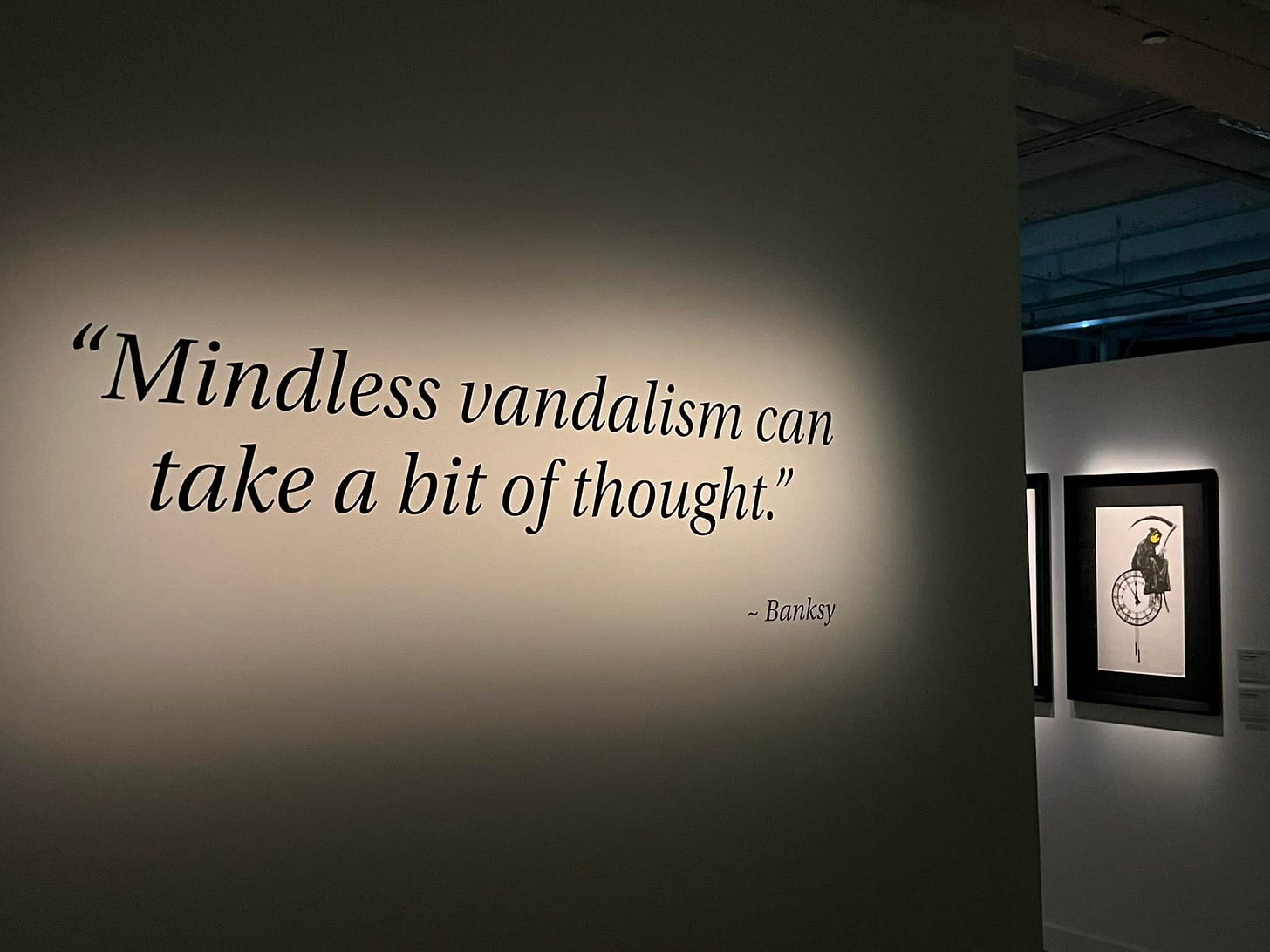Most people don’t pay much attention to graffiti on trains. It flickers by in a blur of steel and spray paint, dismissed as vandalism or background noise. But for benchers — the unassuming subculture of people who sit trackside documenting freight art it’s a ritual of paying attention.
I suppose I’m a bencher of sorts. A tag, a phrase, even a rough doodle on a boxcar often leads me to something larger. Sometimes it’s a breadcrumb trail toward an Instagram account, where I end up learning a whole lot about a stranger’s world. Other times, it’s a fragment of poetry that lingers in my mind long after the train is gone.
I appreciate graffiti because it resists permanence but still manages to communicate. It demands attention in passing, and if you give it that attention, it often rewards you with something unexpected.
Last night, after work, I brought my coffee down to the Creston Amtrak/BNSF station. I wasn’t catching a train, I was catching my breath. I sat on a bench with my phone in hand, watching freight cars roll by until one caught my attention with this message sprayed across its side:
“What happens when David becomes Goliath?”
This bit of street philosophy reminded me of something Iowa Auditor of State Rob Sand told me in a 2021 interview, when our own Southern Iowa Council of Governments director was under investigation and Sand had just opened a special investigation.
“Our office is involved, as it should be, anytime there’s a misstep in public dollars in the state,” he said.
But what stuck with me in our convo wasn’t the details of the case — it was Sand’s broader point. In small towns, trust often runs deeper than oversight.
“In Iowa, we don’t want people to feel they aren’t trusted,” Sand said. “But it’s not about trust. It’s about avoiding temptation.”
He warned that boards, councils, and commissions can’t afford to look away from the basics: bank statements, credit card records, discrepancies that don’t add up. Transparency isn’t a sign of suspicion. It’s a safeguard.
“Taxpayer dollars should be treated with the reverence they deserve,” he said. “Everything we are doing in government really is an expression of the idea that we don’t need a king or a queen to have order. Ordinary people need to be treated like owners.”
What happens when …
That freight-car question and Sand’s words echo one another. We tend to celebrate the underdog, the scrappy David who fights giants. But what happens when David wins? When he becomes the one holding the slingshot and the crown?
Power, even in small towns, changes people. Ordinary people who once fought from the margins become the establishment. Institutions that once stood for resistance can calcify into gatekeepers. And then the local press, and fellow board or commission members, are often too trusting or too polite to ask hard questions, becoming complicit in letting it happen.
The biblical metaphor isn’t just about ancient battles. It’s about us. It’s about local boards that fail to demand transparency. Movements that lose sight of their founding purpose. It’s also about artists, politicians, and citizens who forget that humility is harder to sustain than resistance.
The words disappeared with the train, but the thoughts it provoked lingered.
David doesn’t stay David forever. Sooner or later, the stones run out, the crown passes, and the question becomes whether we’ve built a system strong enough to keep people accountable. It doesn’t matter how well we think we know someone, or how much we want to trust them.
It’s easy to celebrate resistance. It feels righteous and kind of romantic. But it’s much harder to steward power once we’ve gained it, becoming the very thing we once opposed.






This is a great piece and reminds me of Animal Farm. I read that at probably a too-young age, but the story stuck with me; the oppressed rise up to take power and become the oppressors. Pigs or humans, power tends to corrupt, and absolute power corrupts absolutely.
Nice article. Thank you